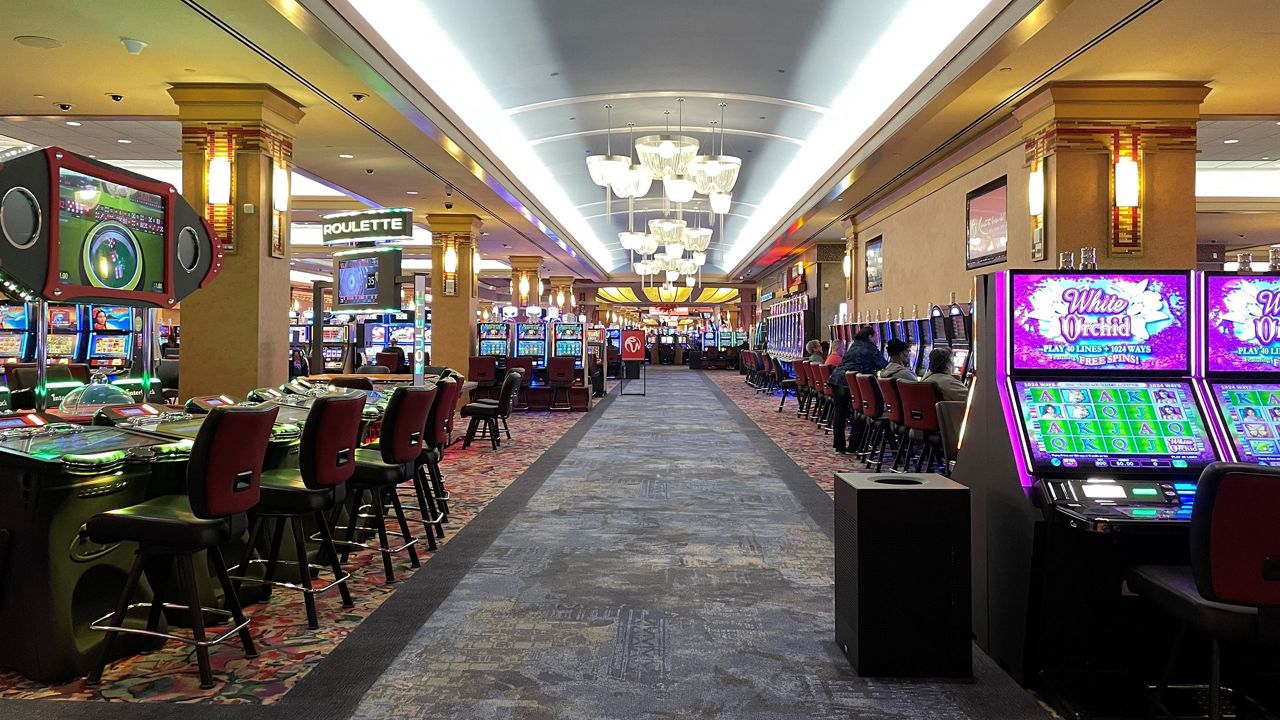Gambling games have long been a significant aspect of human culture, offering not just entertainment but a fascinating reflection of our dreams, wishes, and anxieties. From the spinning reels of a slot machine to the tactical play of poker, these games encapsulate a spectrum of human sentiments and events. bookies not on GamStop At their core, casino games are not just a chance to earn cash; they are a reflection of life itself, where risk and reward merge and fate can change in an eye blink.
As players assemble around tables or sit in front of vibrantly illuminated machines, they engage in a ceremony that transcends mere gambling. These games echo our instinctive desires for relationships, excitement, and the pursuit of luck. They also disclose deeper truths about human psychology, such as our relationship with luck and the excitement of the unknown. In exploring casino games, we discover not only the rules of play but also the rich tapestry of the human experience, showcasing our woven narratives of hope and reality.
The Psychology of Gambling
Wagering is deeply rooted in human psychology, appealing to various feelings and wants. The excitement of risk-taking is a core aspect that attracts participants, be it the thrill of spinning a roulette wheel or the anticipation of drawing a winning card in a poker game. This adrenaline is often compared to other forms of thrill, as the unpredictability of outcomes elicits a unique psychological response. Gamblers often find themselves entranced by the possibility of striking it rich, leading to an irresistible draw toward gambling games.
Another, a crucial component of the psychology behind gambling is the concept of optimism and aspiration. Players often nourish dreams of financial freedom and the luxurious lifestyle that can follow winning. This hope fuels their continued participation in casino games, as it provides a sense of purpose and the conviction that a life-changing win could be just one wager away. The story of overcoming odds and achieving success resonates with many, strengthening their commitment to play and engage with these games.
Finally, social dynamics play a crucial role in gambling psychology. Casino environments are designed to promote social interaction, where gamblers gather to share the journey of wins and losses. This communal aspect not only amplifies enjoyment but also affects behavior, as individuals often imitate the actions of others in their vicinity. The collective approval found in mutual thrill can enhance the emotional experience, making casino games a reflection of not just personal desires but also collective engagement within the gaming community.
### Risk and Reward: A Double-Edged Sword
Casino games embody the fragile balance between risk and gain that resonates profoundly with human nature. The thrill of placing a wager is often accompanied by a rush of adrenaline, as players are confronted with the prospect of a huge payout, yet conscious of the possibility to suffer losses. This bipartisan experience reflects a core aspect of life: the decisions we face often come with intrinsic risks, and the chase for gain can push us to take chances we might not otherwise consider. In this way, casino games echo real-world choices, enticing players to gamble not just their funds, but also their hopes.
The allure of grand jackpots and winnings fuels a feeling of positivity, motivating gamblers to envision a more promising future that could emerge from a lucky spin of the wheel or flip of a card. This optimism can motivate individuals to engage in riskier behaviors, encouraging them to take greater risks in search of monetary success. However, just as in life, the consequences of these risks can lead to both triumph and failure. The narratives of both big winners and those who have faced losses everything at the tables demonstrate the chaotic nature of chance and its consequential repercussions on our lives.
Ultimately, the experience of engaging with gambling activities serves as a vivid illustration of the human condition. Every session played is imbued with the tension of uncertainty, as players weigh the gains against the dangers. This interaction not only highlights the excitement that comes with gambling but also unveils the risks that come with the urge for more. As we journey through the complexities of choice and results in both the casino and in life, we find that the quest for gain shapes our character and experiences in deep ways.
Culture and Isolation in Casino Culture
Casino environment is a unique combination of social interaction and individual endeavor, reflecting the contrasts of human experience. Gamblers often come together around games, sharing in the excitement of the game, rejoicing in wins, and commiserating over losses. This communal aspect is crucial, as it fosters a sense of belonging and bonding among diverse groups of people. Regular attendees to gaming establishments may form friendships and establish routines, turning the casino into a alternative home where they experience connected to a greater community of players.
However, the appeal of gambling games can also lead to isolation. As individuals become immersed in the thrill of playing, they may withdraw from personal relationships or neglect to engage with the world outside the casino. For some, the search of a jackpot can distract from real relationships, leading to loneliness. The experience of being among people yet feeling solitary is not uncommon, as the attention shifts from shared enjoyment to the private concerns of each individual’s journey.
This interaction of society and isolation creates a vivid tapestry that defines gaming atmosphere. It showcases the complexity of social interactions, where happiness and sorrow exist together. Casinos serve as both a sanctuary for social interaction and a stage for individual struggles, demonstrating how intimately connected our yearning for companionship and the personal quest for wealth can be. In navigating this environment, players confront their own stories—seeking both the thrill of the wager and the fellowship of fellow gamblers, eventually mirroring the broader spectrum of individual experience.

